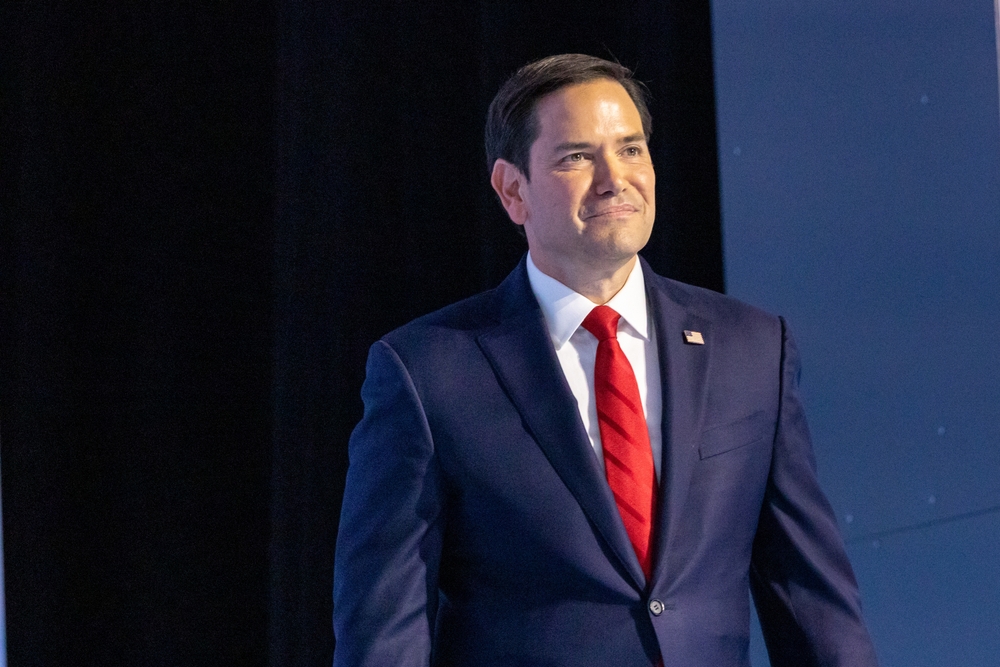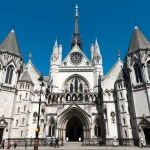Free Speech for All or None: What is the Danger of Selective Censorship?
In a recent cabinet meeting, Senator Marco Rubio disclosed that an obscure office within the Biden administration had compiled a 'disinformation' dossier on a Trump official. This revelation has ignited a debate over the boundaries of free speech and the role of government in monitoring information.
According to Rubio, the State Department's now-defunct Global Engagement Center (GEC) had been keeping tabs on social media posts of American Citizens, deciding what is disinformation and labelling them as so. One target was a member of Donald Trump's cabinet, the individual remains undisclosed. It's not surprising someone in the Trump administration is being flagged for disinformation. The GEC, originally established to counter foreign propaganda, appears to have extended its reach into domestic affairs, this does raise concerns about government overreach and the suppression of dissenting voices according to Fox News.
Should we let a small group within the government decide what can be said and what can't? This does creep into censorship, even those spreading lies have a right to express their thoughts, unfortunately.
Related: Is Kanye West Using Hate to Stay Relevant?
The Slippery Slope of Censorship
The core issue here isn’t just about identifying disinformation, but who gets the power to define and control it. In any society that claims to value free speech, the ability to label something as "misleading" or "false" cannot be handed over to a select few behind closed doors. While the intention to combat harmful misinformation is understandable, the methods must never trample on constitutional freedoms or become politically weaponized.
Social Media and the Boundaries of Free Speech
Social media platforms have become a place where thoughts are exchanged and ideologies clash. With that reach comes risk: lies can spread like wildfire. But strict, sweeping censorship is not the answer. A nation cannot remain free if it only allows “approved” narratives. That’s not democracy, it’s control. It does often seem like Trump would like a society like this - only those who agree with him can have a platform which is probably the reason for Truth Social.
Free speech should not mean consequence-free speech. There must be a clear line: when speech incites violence, promotes hate, or endangers others, it crosses into territory where legal safeguards are not only appropriate, they are essential. No one should be subjected to targeted threats or dangerous rhetoric masked as “opinion.” Protecting the public from violent content should not be seen as censorship, but as common-sense protection under the law.
Free Speech doesn't give people the right to lie or spread hate, whether your're a government official or not!
Personal Responsibility in the Information Age
In a society overwhelmed by content, from millions of different people globally, there is a responsibility on the individual to not blindly take on the views they see at first glance. Today, there is a lack of individuals taking on their own research, checking multiple sources, thinking for ourselves. There will never be a complete disappearance of speech you dislike or disagree with due to a vast amount of varying experiences and views. This has a value in society and we shouldn't be aiming to discard this. Media literacy and critical thinking should be just as prioritized as free expression. An informed public is a stronger defense against disinformation than any algorithm or government body could provide.
We need to bring back thinking for ourselves, not blindly trusting those in leadership positions!
Related: Why Do Some Countries Ban WhatsApp?
What does the team at CEO Today believe?
I asked my colleagues to see what they think on the topic of free speech and this is what they had to say...
- "I think free speech is important but it shouldn't be used as a get away with saying anything you want or to spread misinformation and hate, there should be clear defined laws about what free speech covers so people can be held to account if they go past that point."
- "I think it's really hard to define as it's such an open term. Generally, my view is that everyone should have free speech; however using free speech as a vehicle for spreading hate or misinformation is wrong. If you can't make heads or tails of what's true, people in positions of power can tell you what the truth is because they're in positions of power. It's incredibly frustrating, because you have people out there acting in bad faith, labelling real information as "fake news" because it suits them. Is censorship the answer? Yes and no. For hate speech yes, for misinformation, I think a dedicated and trusted fact checker in some capacity would work best. And perhaps if someone is knowingly continuing to spread misinformation, then it should be censored in some capacity. "
- "I think people throw around free speech a lot, but no one seems sure where it crosses into hate speech - that needs to be defined."
- "It depends who is defining free speech - Trump defines it as anything said that agrees with what he says. If you disagree with what he says then you are not allowed to have free speech as in the case of this guy - Columbia protest leader Mohsen Mahdawi released from US custody "
Conclusion
The revelation that a Biden-era office kept a disinformation file on a Trump official raises serious concerns about selective enforcement. Free speech must be upheld across the board, no matter whose voice it is. But it’s equally important to recognize that speech encouraging violence or hate cannot go unchecked. Democracy depends not just on the freedom to speak, but on the responsibility to do so without causing harm. Free Speech isn't an easy topic to discuss, there is more to it than a yes or no in order to protect the public whilst allowing them to express themselves freely. And that's why my day job is writing and not making the tough calls!
Related: Populism Is Dead: The World’s Had a Front-Row Seat to America’s Chaos, and It’s Over
Related: Truth Social: Trump’s Echo Chamber Masquerading as Free Speech














